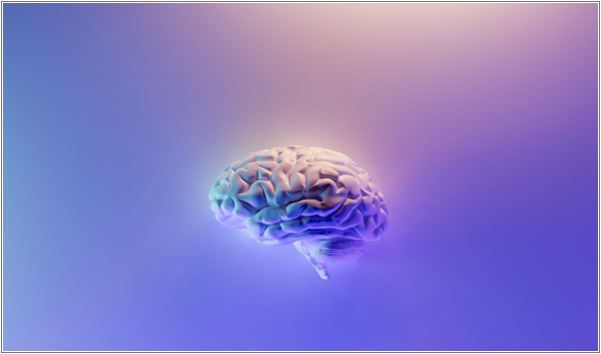AI's Astounding Effect on Psychology

For the past 60 years or so, humans and AI have coexisted together harmoniously, though some may argue otherwise. It wouldn’t be wrong to say that AI has, and probably will, play a prominent part in the fields like technology, philosophy and even psychology. Ever since AI has expanded its reach towards the subject of behaviourism and the study of the mind, AI’s impacts on human behaviour and mental health have intensified, and some debate whether AI controls human emotions and decision-making. One thing for sure is that studying human psychology wouldn’t be the same as it was 60 years ago.
Picture this: The lights in your house turn off automatically as you command Alexa to do so before you walk out of the house. The door locks by itself as you get into the self-driving car. It starts to drive you to school, and you’re thinking about all sorts of things, but one random question crosses your mind; How would AI impact psychology? Well, let’s take a look...
Human Behaviour and AI - brilliant or a bummer?
Imagine being able to predict someone's feelings. Artificial emotional intelligence analyses human feelings and features without the heft of human bias. Reading human expressions and converting them into a spectrum of emotions creates a precise picture, elevating security surveillance to unprecedented levels. AI enables the detection of unsociable behaviour, preventing criminal scandals or self-slaughter. However, a recent study showed how AI could make people achieve their desired goals while another AI program impersonated the voices of Obama, Trump, and Clinton having a conversation (which never actually happened). This questions our rights to free will and shows how advanced deep fakes have become.
Artificial intelligence’s influence on mental health
With artificial intelligence evolving throughout the years, it helps us do many things in our daily life. Consequently, humans could become more attached to AI and isolate themselves from the real world. This results in humans and AI taking advantage of each other. This would increasingly affect our mental health by getting diagnosed with mental illnesses. However, mental health is one of the most recent areas for artificial intelligence. As AI lengthens its ability, it is being used in the mental healthcare field in many ways, such as recognizing temperature changes, facial recognition to confirm a patient's identity, and smell analysis to identify intoxication. With how advanced AI has become, it can stimulate an expert with capabilities beyond human realization. Apart from assisting experts, AI also conducts therapy sessions.
AI- Manipulation mastermind
What happens when AI takes control? Well, this smart intelligence can make a myriad of mischief. AI and humans have incredible differences, like how it lacks human emotions. But that doesn't mean it can't take advantage of humans. Recent studies have shown that AI can identify vulnerabilities in humans and their behaviours and use them to influence human decision-making. Moreover, AI algorithms can collect data on something as simple as the ‘like’ button on platforms such as Facebook. This large invasion of privacy levels up when the owner of this data is unknown. This changes the trust humans have in AI for the worst.
AI’s contribution to Emotions:
How do we feel about AI? Some say it's for the better, Some disagree, and others remain neutral and just accept it. With the truth being hidden from us about the dark side of AI, we don’t really know. We know there are merits to AI and how it improves life, but what about the other perspective? Just because AI can read emotions doesn’t mean it is exactly how humans feel at that moment. AI does have a lot to prove to us. With its algorithms being able to discriminate against humans and make rude comments, it shows unethical behaviour. For now, humans and AI have a bond to work on. But without these machines feeling emotions like humans, it might go the wrong way. Therefore, it's unsure whether humans can welcome AI with open arms.
Conclusion:
So, yes, AI does have an astounding effect on psychology. From predicting someone's feelings and collecting data from large platforms to manipulation and control, heightening trust and emotional problems. Of course, there are more but till now, these are major ones that caught our attention. In hopes that the future of humans with AI will improve and the downfall wouldn’t continue, we hope everyone is ready for what is yet to come!
References:
https://createdigital.org.au/study-shows-ai-can-manipulate-human-behaviour/ - study on how AI manipulates humans
https://www.comparethecloud.net/articles/artificial-intelligence-human-behaviour/ - AEI
https://phys.org/news/2019-04-artificial-intelligence-emulate-human-behaviors.html - examples of AI imitating humans
https://positivepsychology.com/artificial-intelligence-in-psychology/#examples - how AI is used in mental health
https://venturebeat.com/2017/10/06/ai-innovations-have-an-inevitable-effect-on-human-emotions/ -How AI innovations have an effect of human emotions
https://www.bruegel.org/blog-post/dark-side-artificial-intelligence-manipulation-human-behaviour -The dark side of AI manipulating human behaviour
https://theconversation.com/ai-can-now-learn-to-manipulate-human-behaviour-155031 -How AI can learn to manipulate human behaviour
Author Informaton:
Shuau Ismail Shan - Maldives.
Aishath Rausam Mohamed Rauf - Maldives.
Aishath Rizwana - Maldives.
Cite this article as:
Shuau Ismail Shan, Aishath Rausam Mohamed Rauf and Aishath Rizwana, AI's Astounding Effect on Psychology, theCircle Composition, Volume 3, (2022). thecirclecomposition.org/ais-astounding-affect-on-psychology/
